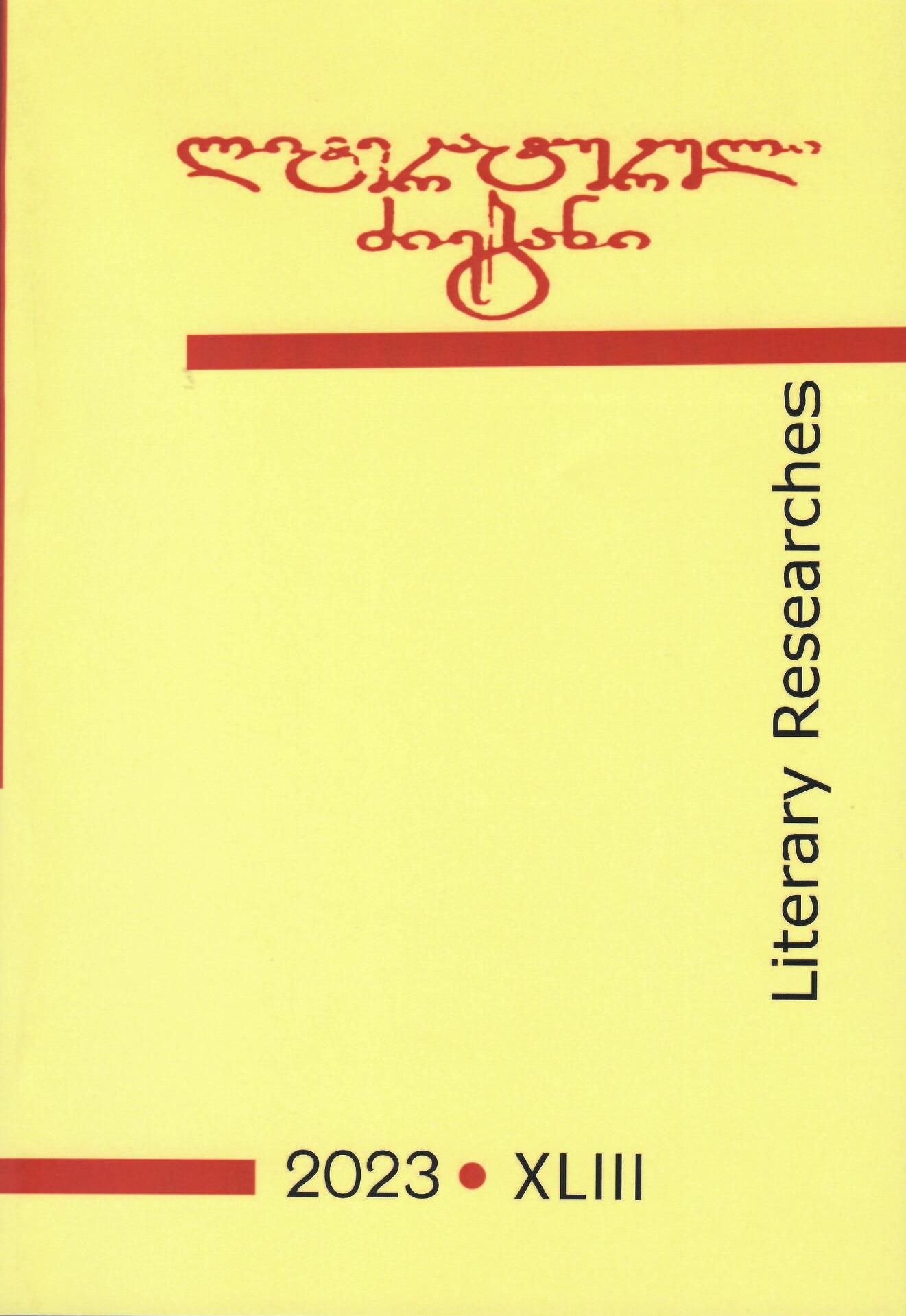გამოქვეყნებული 2023-12-14
საკვანძო სიტყვები
- პიერ კორნელი,
- ცინა,
- რომაული სათნოება,
- ფრანგული კლასიცისტური ტრაგედია,
- წყალობა
- ემილია,
- ლივია ...More
როგორ უნდა ციტირება
ანოტაცია
The word la vertu (virtue) appears in French texts and plays since the Middle Ages. Clergymen, philosophers and moralists believe that the quality of human ethics is measured by the quality of virtue. So, virtue can be considered one of the most important concepts of Western civilization and literature.
In the XVII century, the theme of virtue is relevant in French literature, in particular in French classical drama.
In Roman tragedies of French classicist dramatist Pierre Corneille, the poetics of virtue occupies an important place, which varies according to the context of the tragedies.
The article we present an analysis of the poetics of Roman Virtue according to the tragedy Cinna by Pierre Corneille.
Cinna ou la Clémence d’Auguste ( Cinna or the Clemency of Augustus), the second tragedy from the cycle of Roman tragedies by Pierre Corneille draws our attention to the different nature of the virtues shown by its characters, which is closely related to the socio-political situation and worldview.
As in his first Roman tragedy – Horace, in Cinna P. Corneille again refers to the concept of virtue (la vertu) in both moral and political contexts.
Unlike Horace’s Roman virtue (la vertu romaine), which is a masculine virtue, while female virtue is completely subservient to male virtue, in Cinna on the contrary, we find a different definition of virtue. The virtue of heroes of Cinna is determined by the feelings of love, revenge and clemency.
If in Horace Roman virtue is associated with patriotism, then in Cinna Roman virtue includes all the ideas and aspirations of its heroes that determine their actions.
In Cinna men’ s virtue depends on the virtue of women. The actions of Cinna and Augustus are determined by the virtues of two strong women – Émilie and Livie.
Augustus’s virtue – clemency, is the merit of his wife Livie, because the idea of clemency belongs to her.
For Cinna’s sweetheart– Émilie virtue is associated with revenge. The virtue of emperor’s wife – Livie, is expressed in her intelligence and wise advice, which is based on the main defining concept of virtue– caution. It is true that women’ s virtues do not appear in the foreground in Cinna, however, their virtues have an important function in tragedy. The virtues and actions of the female characters of Cinna differ from the actions and virtues the female ones of Horace .
In Cinna, women do not obey masculine virtues. Both Émilie and Livie react to the men’s actions. Émilie ‘ s reaction is intense and spontaneous, Livie’s – is moderate and reasonable, but in the end both are influenced by the virtues of the men – Cinna and Augustus.
Virtue has both a dramatic and a structural function in tragedy. In addition being a moral example for the audience of the theater, virtue plays a special role in the development of the plot in the French classical drama of the XVII century, Because the virtue of the characters in the play determines both the development of the plot of the play and the final act.
The virtues that were considered masculine virtues in antiquity are characteristic of the female characters of Cinna. In antiquity, clemency was not a characteristic virtue of women, but of men who ruled the State.
According to Cinna, the source of Emperor Augustus’s virtue is a woman – his wife – Livie. Émilie and Livie express feminine virtues in Cinna. Émilie and Livia are not only virtuous characters in the tragedy, but they control and subjugate the virtues of men according to their desires. Unlike Horace, in Cinna men obey women’s virtues and fulfill women’s wishes or advice. The virtue of Augustus, which is the merit of Livie, causes the admiration of his subjects, which increases loyalty and respect for the monarch.
It is worth noting that for Corneille’s heroes, true virtue does not exist without sacrifice. In “Horace” Horace and Curiace sacrifice family and love relationships for the State interests. In Cinna, Émilie sacrifices her virtue (desire for revenge) to Augustus’ highest virtue (clemency). And Cinna sacrifices her virtue (patriotic obligation) for Émilie ‘s love.
In Cinna, the paradigm of the poetics of virtue is created by three main concepts: 1. revenge – la vengeance, 2. Obedience to the wishes of the lover – Obéissance aux souhaits de l’amant and 3. clemency – la clémence.
The full title of the tragedy, Cinna ou la Clémence d’Auguste – Cinna, or the clemency of Augustus indicates that the highest virtue is the clemency of Augustus.

